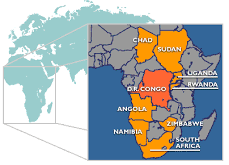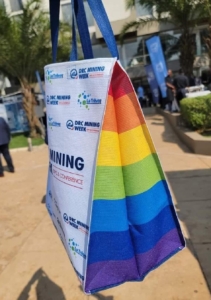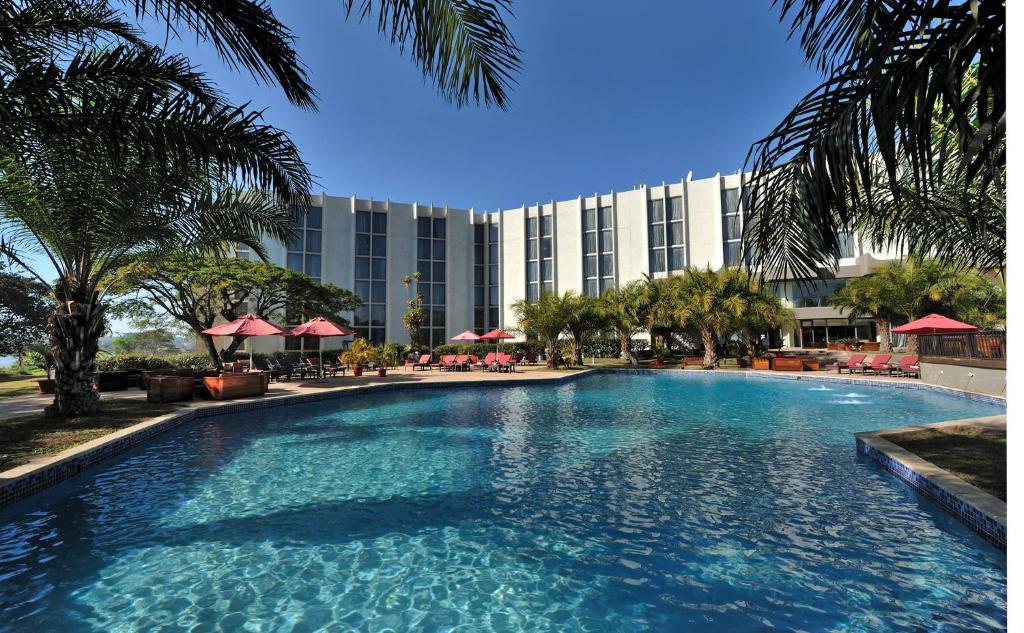In the Congo, some hope to use anti-gay Uganda as a role model
Moïse Manoël-Florisse, is an African-Caribbean online journalist keeping an eye…
Gift bags with rainbow colors spark protest at mining conference

In the two weeks since Uganda enacted its harsh new Anti-Homosexuality Law, some opinion leaders in the Congo, Uganda’s neighbor to the west, have been calling for their country to follow Uganda’s example.
The Democratic Republic of the Congo (DRC) is a homophobic society, but currently has no explicit law against homosexuality. In contrast, the new law in Uganda calls for the death penalty for repeated homosexual activity, 20 years in prison for “promoting” homosexuality and seven years for landlords whose properties are known to be used for promoting homosexuality or same-sex activity.
The latest homophobic agitation in the DRC comes against a backdrop of campaigning for the general elections (presidential, legislative and provincial) scheduled for Dec. 23, 2023.
For Erasing 76 Crimes, Jérémie Safari, managing director of the LGBTQ advocacy group Rainbow Sunrise Mapambazuko in Bukavu in eastern Congo, shares his views on recent developments in his country.

Jérémie Safari: Marcel Kitambala, a journalist on Top Congo FM radio, spoke out on Twitter about a member of parliament telling him of a bid to criminalize homosexuality in the DR. Congo, even though our country currently has no legislation on the subject.

Unfortunately, as might have been expected, this type of argument has struck a chord with public opinion and has been widely reported in the media.
What’s more, a sit-in has just been held in Lubumbashi in response to an economic operator who used rainbow-colored bags as goodies at an economic forum dedicated to business in the mining sector.
Erasing 76 Crimes: Can you tell us more?
Jérémie Safari: From June 14 to June 16, professionals from the country’s mining sector are meeting at the Karavia hotel in Lubumbashi, Katanga, for DRC Mining Week. To mark the occasion, visitors and participants were given a kit, including a colorful bag and a brochure about the event.

That was all it took to set things off, however, as the leader of the city’s network of civil society organisations, Achille Ngoy, decided to stage a sit-in in front of the hotel on June 15 to voice his disapproval of the choice of colors for the goodies distributed to the public.
He sees the rainbow colors as advertising and proselytizing for the acceptance of homosexuality in DR Congo.
For the time being, the organizers of DRC Mining Week have not yet commented.
Erasing 76 Crimes: Do you see the timing of the online discussion and the sit-in as coincidental or as the beginnings of an LGBTphobic groundswell in DR Congo?
Jérémie Safari: I see two things. First, both those expressions of anti-LGBT attitudes are consistent with the obstacles that LGBT+ people are confronting when they try to get voter cards as part of the DRC’s update of its voting rolls for the upcoming elections.

Second, they are occurring in a context where the political class is having difficulty mobilizing voters. Some believe that waving an anti-LGBT+ flag can can help them [maintain voters’ allegiance].
The passage of tough anti-gay legislation in neighboring Uganda has not helped matters — quite the contrary. Some [LGBT-phobic commentators] suggest that Uganda is an example to follow.
In a world running out of ideas, LGBTphobia moves in where modern political imagination is lacking.
Nevertheless, [at Rainbow Sunrise Mapambazuko] we have no intention of standing idly by. We want every LGBT+ person’s vote to count in DR Congo.
You can write to Jérémie Safari by clicking on this link.




